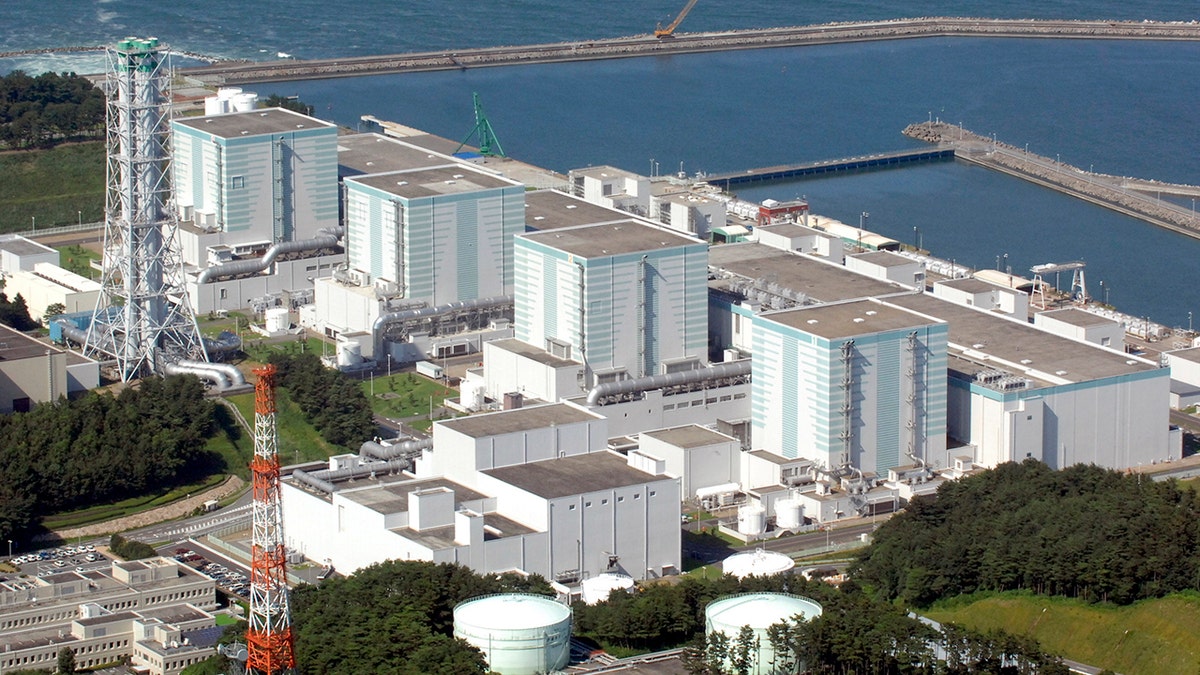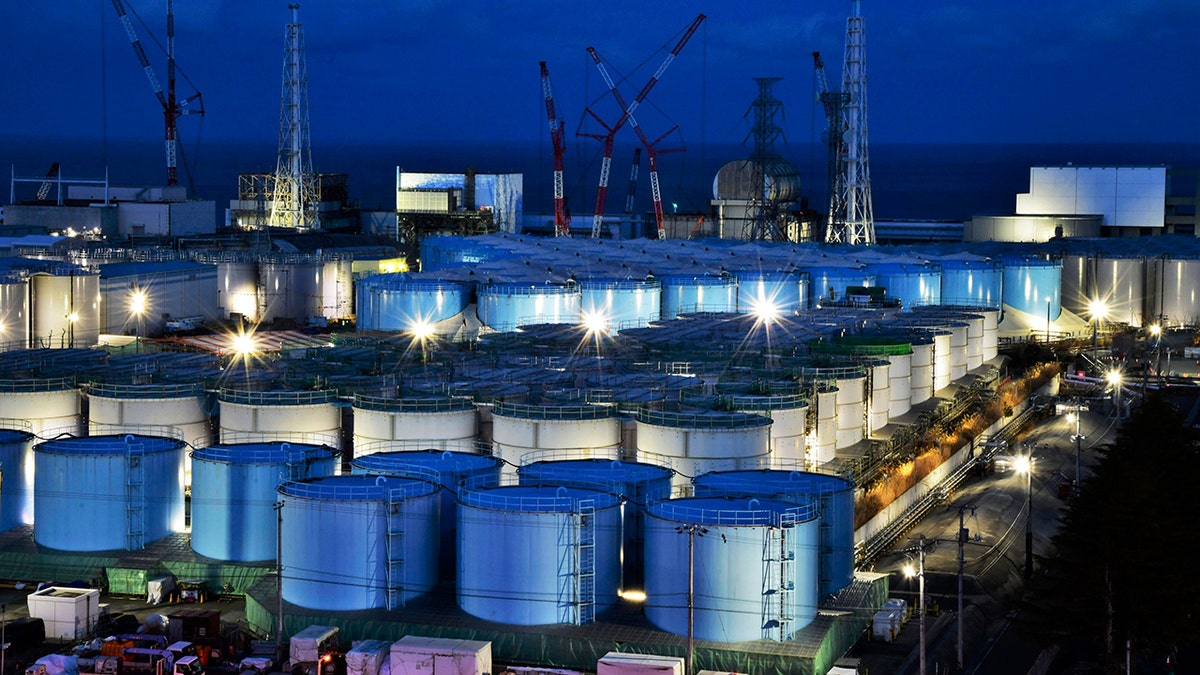Fox News Flash top headlines for Sept. 10
Fox News Flash top headlines for Sept. 10 are here. Check out what's clicking on Foxnews.com
Massive amounts of toxic water from the Fukushima Dai-ichi nuclear power plant in Japan have to be dumped into the Pacific Ocean because the facility is running out of space, the country's environment minister said Tuesday.
Three reactors at the power plant suffered meltdowns in the 2011 earthquake and tsunami that devastated northeastern Japan. Radioactive water from the damaged reactors has leaked and mixed with groundwater and rainwater from the plant.
RUSSIAN NUCLEAR AGENCY SAYS 5 DEAD IN MISSILE TEST EXPLOSION
The water is treated, but remains slightly toxic and has been stored in large tanks. Nearly 1,000 of them hold more than 1 million tons of water.

The Fukushima Dai-ichi nuclear power plant, pictured here in 2006, is running out of space to hold toxic water. (Kyodo News via AP)
But Tokyo Electric Power Co. (TEPCO), the utility company operating the nuclear power plant, said last month it's running out of space for the radioactive water. The company said it plans to build more tanks, but can accommodate only up to 1.37 million tons, which it will reach in the summer of 2022.
Yoshiaki Harada, Japan's environmental minister, said Tuesday that because of the lack of space, TEPCO will have to dump the toxic water into the Pacific.
RESIDENTS FROM PARTS OF FUKUSHIMA PLANT HOMETOWN ALLOWED TO RETURN AFTER JAPAN LIFTS EVACUATION
“The only option will be to drain it into the sea and dilute it,” Harada said at a news conference, according to Reuters. He didn't elaborate as to how much water he thought would be dumped into the ocean.

The power plant has been holding more than 1 million tons of water, that's slightly radioactive, in more nearly 1,000 tanks since the disaster in 2011. (Kyodo News via AP)
Japan last week tried to reassure foreign diplomats about safety at the plant amid concerns, notably about safety, especially as Japan tries to get countries to lift restrictions on food imports from the Fukushima area ahead of the 2020 Tokyo Olympics. Import restrictions are still in place in 22 countries and regions, including South Korea and China.
CLICK HERE TO GET THE FOX NEWS APP
Experts have said the tanks pose risks of flooding and radiation. Nuclear scientists, including members the International Atomic Energy Agency and Japanese Nuclear Regulation Authority, have recommended the water's controlled release into the ocean as the only realistic option scientifically and financially. Local residents oppose this, saying the release would trigger rumors of contamination, which would spell doom for Fukushima's fishing and agriculture industries.
Releasing the water into the Pacific is one of six options picked by a government-commissioned panel. Another option includes long-term storage.
The Associated Press contributed to this report.
